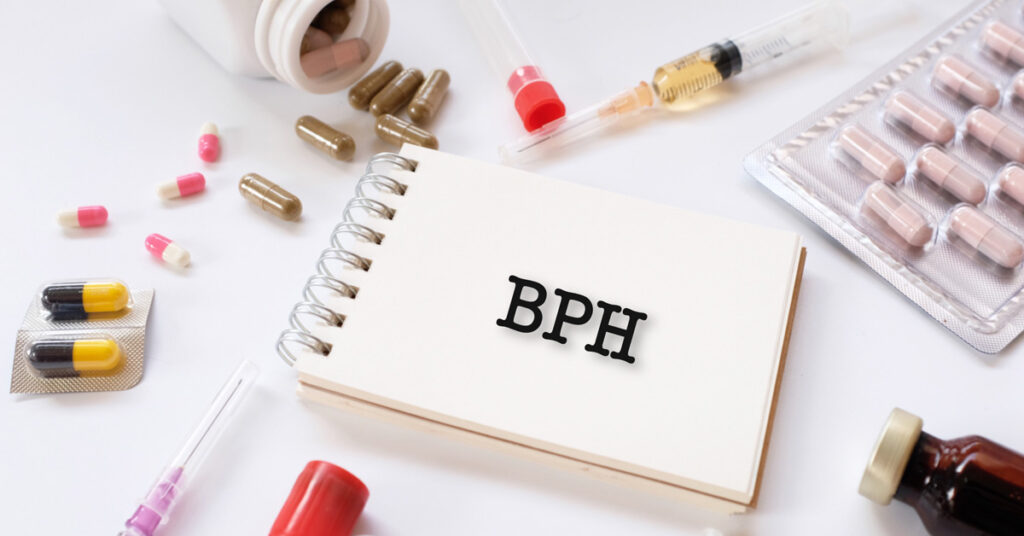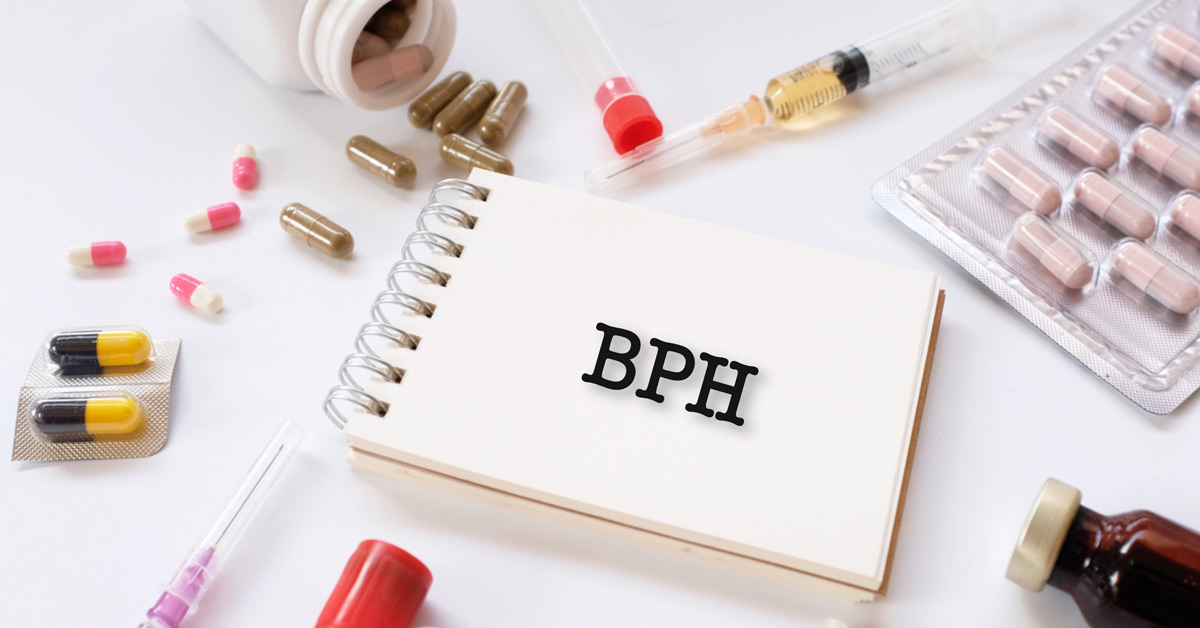
Benign prostatic hypertrophy (BPH) is a common condition most men experience as they age. BPH causes the prostate gland to enlarge, leading to bothersome urinary symptoms. Many different treatment options exist for men who struggle with BPH, ranging from lifestyle modifications to surgical procedures.
Deciding what treatment will work best for you and your circumstances can be challenging when choosing a treatment option. The best treatment option for you may differ from what is recommended for other men. Often, your urologist will base their recommendations on how conservative you want to be with your BPH management and the impact that BPH is having on your life. Here are some options commonly used to treat BPH.
BPH Treatment Options
Active Surveillance
Especially in the early stages of BPH, symptoms may not significantly impact your quality of life. For men with mild symptoms, it may be best to monitor your condition by monitoring your urinary symptoms. Regular checkups with your doctor are essential to continue discussing how BPH affects you and if further treatment may be in your best interest.
Lifestyle Modifications
Lifestyle modifications can help manage mild symptoms of BPH. Dietary changes, such as avoiding caffeine, alcohol, and spicy foods, especially in the evening, can help reduce urinary symptoms. Your doctor may also recommend you decrease the amount of fluid you drink in the evenings to help reduce the number of times you get up at night to use the bathroom.
Regular exercise is also important for BPH management. Not only does regular physical activity improve your overall health, but it can also help alleviate some of your BPH symptoms.
Medications
Medications can be an excellent option for men with moderate BPH symptoms. There are different types of medications, and each type works a little differently. Medication types include
- Alpha-Blockers: These medications relax the prostate and the muscles surrounding the bladder. The relaxation effect improves the flow of urine and reduces the symptoms of BPH. These medications include tamsulosin, alfuzosin, and doxozosin.
- 5-Alpha Reductase Inhibitors: Medications like finasteride and dutasteride can shrink the prostate gland by blocking the hormone that contributes to its growth.
- Combination Therapy: Some men may benefit from combining both of these medications into their daily routine to help reduce their BPH symptoms.
Minimally Invasive Procedures
Minimally invasive procedures can be a good option for men who have not seen an improvement in their BPH symptoms with lifestyle modifications and medications. Procedures like Rezum Water Vapor Therapy, UroLift Implants, and GreenLight Laser Therapy can be performed in your doctor’s office or as an outpatient procedure so you can quickly get back to your everyday life.
- Rezum Water Vapor Therapy: Rezum Water Vapor Therapy uses water vapor or steam to shrink the prostate so that you experience fewer urinary symptoms.
- UroLift: UroLift is a procedure that permanently places an implant into the prostate to hold back overgrown prostate tissue and allow urine to flow freely.
- GreenLight Laser Therapy: GreenLight Laser Therapy uses a fiberoptic scope with a laser inserted into the urethra. The scope then uses a high-powered laser to heat the prostate tissue, resulting in shrinkage of the prostate and improved urinary symptoms in men with BPH.
Surgical Procedures
If your BPH has gotten so severe that it is interfering significantly with your life, your doctor may recommend that you have a portion of your prostate removed. This procedure is called a Transurethral Resection of the Prostate or TURP. This procedure is generally reserved for men who have not been able to find any relief in their BPH symptoms with less invasive options.
How to Choose the Best BPH Treatment Option for You
Ultimately, the choice of treatment that is right for you depends on factors such as the severity of your symptoms, overall health, prostate size, and personal preferences. If you are struggling to decide between BPH treatment options, your urologist is the best source of information.
Don’t continue to live with BPH symptoms – schedule an appointment today!

